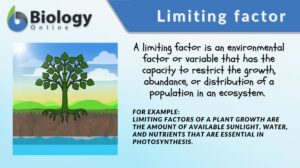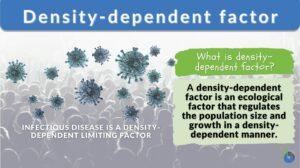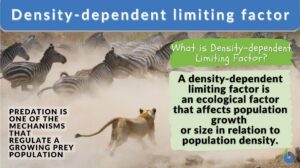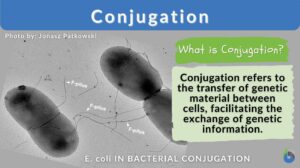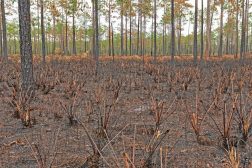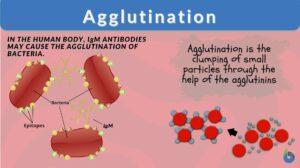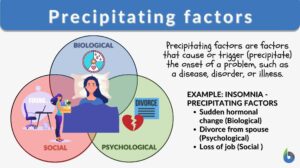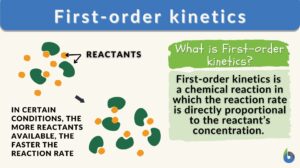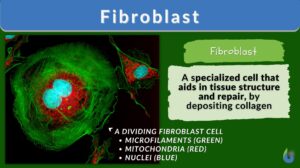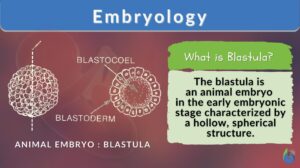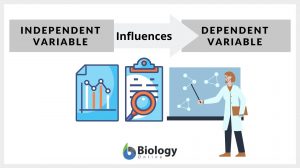Search Results for: rh factor
Limiting factor
Limiting Factor Definition A limiting factor refers to any of the factors (variables) in an environment capable of limiting... Read More
Christmas factor
Definition noun A blood clotting factor in the intrinsic pathway of the blood coagulation cascade and works with clotting... Read More
Blood clotting factor
Definition noun, plural: blood clotting factors Any of the many plasma components involved in blood clot... Read More
Abiotic factor
An abiotic factor is a non-living element of the environment that influences the way organisms and ecosystems function. Some... Read More
Biotic factor
Biotic Factor Definition A biotic factor is the living component in an ecosystem. The term "biotic" means "of or related... Read More
Autocrine signaling
Autocrine Signaling Definition What is autocrine signaling? Autocrine signaling is a type of cell signaling wherein a cell... Read More
Density dependent factor
Density-dependent factors are the limiting factors of an ecosystem that regulate population growth in a density-dependent... Read More
Density dependent limiting factor
What Is A Density-Dependent Limiting Factor? Density-dependent limiting factors are limiting factors, which, depending on... Read More
Conjugation
Conjugation generally means the joining or coming together (union), such as in certain unicellular organisms (some bacteria,... Read More
Prothrombin
Definition noun A blood clotting factor that when activated converts into thrombin (factor IIa), which in turn activates... Read More
Haemophilia A
Definition noun A form of haemophilia that is caused by a deficiency in blood clotting factor VIII due to a gene defect in... Read More
Ecosystem Succession
Just one of the amazing aspects of life on Earth is that it spreads to all areas where the habitat will allow it to survive.... Read More
Agglutination
Agglutination Definition What does agglutination mean? It generally refers to the process of sticking together or the... Read More
Stable factor
stable factor --> factor vii (Science: chemical) heat- and storage-stable plasma protein that is activated by tissue... Read More
Precipitating factors
Precipitating Factor Definition Precipitating factors are factors that initiate or promote the onset of any illness,... Read More
Haemophilia
Definition noun A condition that is characterized by uncontrolled bleeding from the mouth, gums, lips, and tongue,... Read More
F-positive bacterium
Definition noun, plural: F+ bacteria A bacterium with F factor existing as a plasmid and not integrated in the bacterial... Read More
Fibrinogen
Definition noun, plural: fibrinogens A soluble rod-shaped plasma glycoprotein (340 kd, 46 nm long) consisting of six peptide... Read More
Thromboplastinogen
thromboplastinogen --> factor viii A coagulation (clotting) factor. Classic haemophilia (haemophilia A) is due to a... Read More
First-order kinetics
What is a First-Order Kinetics (First-Order Reaction)? First-order kinetics refers to a reaction wherein the overall rate... Read More
Fibroblast
The building block of living things is known as the cell. The cell contributes to many parts and functions of different... Read More
Nucleosome
Nucleosome Definition Every organism is made of deoxyribonucleic acid, also known as DNA. DNA is made up of numerous... Read More
Environmental resistance
Environmental Resistance Definition Environmental resistance is such a process in which certain different elements or... Read More
Independent variable
Independent Variable Definition To define an independent variable, let us first understand what a variable is. The word... Read More
F-prime bacterium
Definition noun, plural: F' bacteria The bacterium possessing a plasmid containing the F factor and a part of the bacterial... Read More
Colony-forming unit
Colony Forming Unit Definition A Colony Forming Unit (CFU) in microbiology and cellular biology refers to a measure of... Read More
Transcription (biology)
In biology, transcription is the process of transcribing or making a copy of the genetic information stored in a DNA strand... Read More
Resistance factor
Definition noun, plural: resistance factors The earlier term used to refer to the plasmid that confers certain bacteria the... Read More
